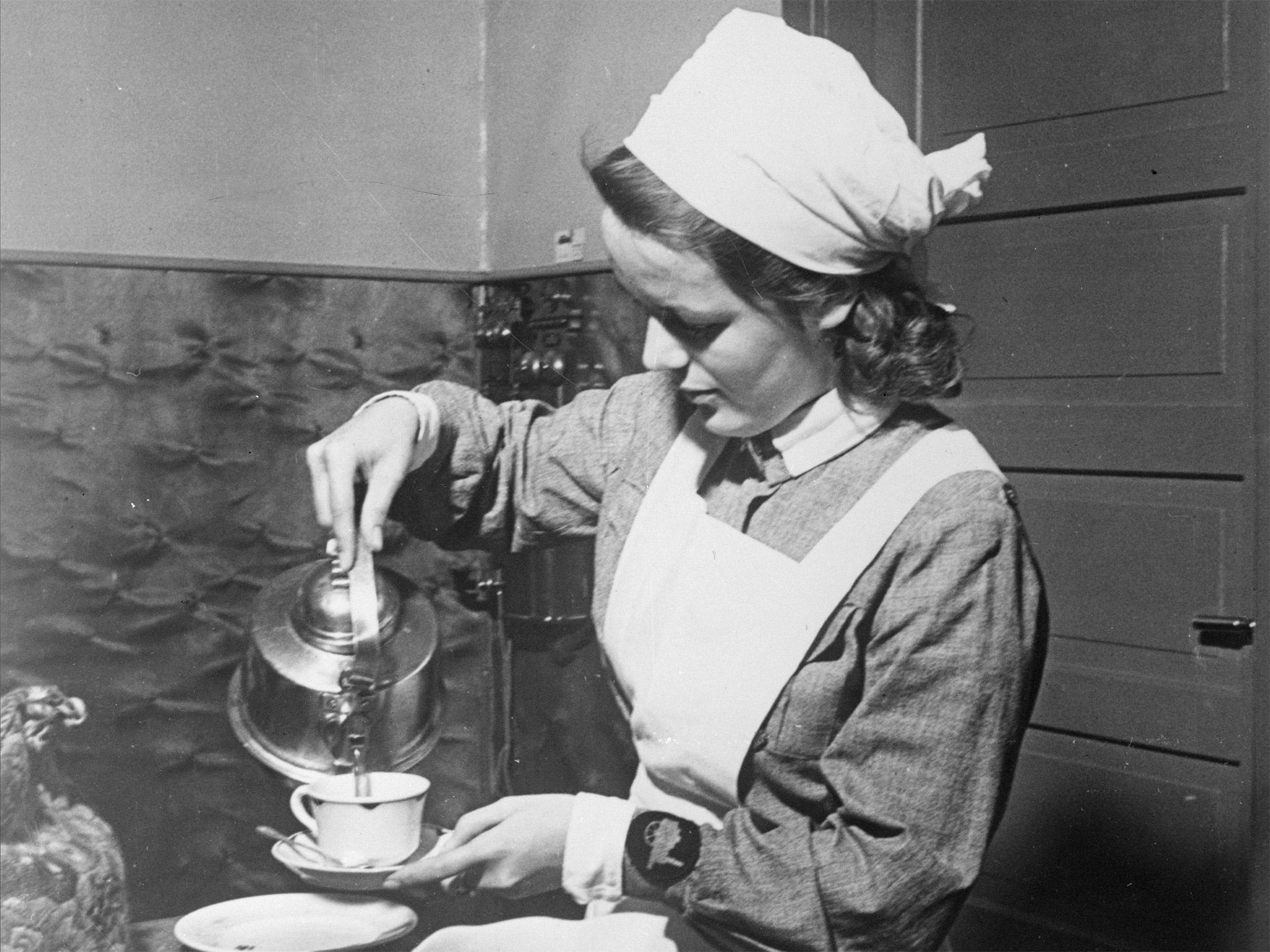A cup of tea is every worker's right
Three hospitals in Leicester have banned their staff from drinking tea and coffee in public areas. Christopher Hirst explains why he thinks that a cuppa is every worker's right

Your support helps us to tell the story
From reproductive rights to climate change to Big Tech, The Independent is on the ground when the story is developing. Whether it's investigating the financials of Elon Musk's pro-Trump PAC or producing our latest documentary, 'The A Word', which shines a light on the American women fighting for reproductive rights, we know how important it is to parse out the facts from the messaging.
At such a critical moment in US history, we need reporters on the ground. Your donation allows us to keep sending journalists to speak to both sides of the story.
The Independent is trusted by Americans across the entire political spectrum. And unlike many other quality news outlets, we choose not to lock Americans out of our reporting and analysis with paywalls. We believe quality journalism should be available to everyone, paid for by those who can afford it.
Your support makes all the difference.From the many memorable moments in Quentin Tarantino's Pulp Fiction, I was recently reminded of one tiny detail. It occurs when Harvey Keitel, who plays Mr Wolfe, a deft and focused specialist in cleaning up crimes gone wrong, launches a fusillade of instructions at two hit men who have messily killed by accident. First, he takes a sip of coffee, nods in approval and says no more than a brief "Mmm!" to the maker, who happens to be played by Tarantino, before spitting out a stream of instructions: "OK, you two, take the body and stick it in the trunk…"
This vignette leapt to mind when I learnt from a report in this newspaper that staff at three Leicester hospitals have been banned from drinking tea or coffee in public places. The curious reason for this interdict is that "having a hot drink in front of patients gives the impression staff are slacking". Leicester may be stuck in some sort of time warp but in the rest of the world it has been accepted as perfectly feasible simultaneously to take on board a sip of refreshment and focus on the job, whether you are Mr Wolfe or a more benign specialist.
The idea that the consumption of tea or coffee automatically involves some kind of break is unbelievably passé. It takes me back to the era of "I'm all right, Jack", when "a cuppa" was customarily accompanied by the production of Woodbines and the Daily Sketch. For many of us, a mild caffeine fix has taken the place of more noxious stimulants. It is not something for a special place or time but an accompaniment to the ongoing business of life.
You can see why it would be valuable in the very circumstances where it is banned. Far from seeing a quick slurp by staff as "slacking" (a term that surely went out with Billy Bunter), patients and visitors are likely to view it as pleasingly ordinary behaviour, even reassuring. I'd be far happier receiving treatment from individuals who are perked up rather than deprived of refreshment.
To be accurate, however, certain forms of refreshment are not included in the Leicester ban. Cold water is OK. "It's important they [the staff] are kept hydrated," a hospital spokesman generously conceded. "Having a cup of tea is more relaxing, shall we say, whereas a bottle of water is purely for rehydration." What a bizarrely puritanical statement. Along with the use of "relaxing" as a pejorative, note the phrase "cup of tea", implying the genteel palaver of cup and saucer rather than a hurried sip from a mug.
The Leicester approach invokes the hospital of half a century ago, with Hattie Jacques as matron, a whiff of carbolic in the air, and the consultant's Rolls-Royce in the car park. Although hospitals have traditionally required staff to take their break periods in private, they should recognise that the lubrication provided by coffee or tea is now part of working life.
Currently involved in a spell of hospital visiting, I've found the experience greatly enhanced by the provision of a pleasant coffee bar, much used by visitors, staff and patients. As with coffee shops on the high street, the quantity sold to go is approximately equal to that consumed on the premises. We simply haven't the time for the slightly antique-sounding "coffee break". In normal life, hot drinks are inevitably consumed at the workplace and the same should surely apply in hospitals, where circumstances permit.
The insistence of the Leicester authorities that "members of the public are frustrated by long waiting times… and are inflamed by seeing members of staff enjoying hot and cold drinks at the reception desks" is particularly disingenuous. Public frustration will not be placated by the removal of steamy drinks but by the abolition of the protracted wait, which, curiously enough, the hospital that installed my favourite coffee bar also seems to have managed.
Join our commenting forum
Join thought-provoking conversations, follow other Independent readers and see their replies
Comments